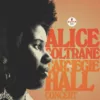WHEN he started, as a kid dancing in Chicago and later DJing as the resident at Detroit’s The Music Institute, he was facing a different dancefloor. “It was a spiritual place for music,” he recalls. “If you weren’t there you obviously missed something because I think there are only about four clubs in the world that can compare to its power and energy.
We had a young, beautiful, black crowd and I mean beautiful in the sense of spirit and mind and soul. We had white kids coming, Spanish kids coming, gay kids coming, straight kids coming. Nobody was on drugs, man, kids smoked a little bit of weed, drank a little liquor, they came, had a ball, went home, made love and felt good feelings all week.”
Like most of the artists who’ve pushed the music further and deeper he was intricately lost inside disco-life. The DJs who took him there were house music’s early 80s pioneers like Detroit’s Ken Collier and Chicago’s Ron Hardy and Frankie Knuckles.
“Before I really started making music I got baptised by Ron Hardy. The way he played music and the way people responded to him, I watched those people climb poles in his club, watched them become animals, like fucking wild animals. And nobody in there was on real drugs, you know maybe a few people using MDMA but the gay scene always kept their MDMA to themselves.
Most of those kids didn’t have no money for shit, so they’d share a joint and pass it around to four or five people until it was about as big as an exclamation point. ” That club was unbelievable and that spirit stayed with me and that shit was embedded in me, scared me, it opened up a whole other insight to where I was coming from electronically and all my other backgrounds. So when I had the chance, man, I followed that vision of those people and that club and of the things I’ve seen in other clubs, Ken’s club, Frankie’s club. All these things. Everybody gets a dose of it, everyone goes to the same parties but for some reason I had a different feeling about it. I don’t know why. I just did. And I felt like I had to do something with those feelings. And I did.”
His best known track, ‘Strings Of Life’ comes from these days, a demo tape he gave Frankie Knuckles to play in his club. It was Frankie who named the song. “It just went crazy,” smiles Derrick. “It just exploded. It was like something you can’t imagine, the kind of power and energy people got off that record when it was first heard. Mike Dunn says he has no idea how people can accept a record that doesn’t have a bassline. It had never dawned on me that ‘Strings’ didn’t have a bassline.” Not that it needed one because like a lot of May’s productions, in ‘Strings’ everything from the strings, the blips, the sequences, the keyboards and sounds all move to create rhythm. It’s as if the funk has infected every part of the track so the whole thing jiggles and dances like a crazy bag of bones some shaman is waving over the dancefloor.
His secret, he claims, is simple – he saves the drums for last. “80% of all my songs have always started with strings, it’s like a mood, a frame of mind. I don’t always end up using those strings but that’s the way I start and from there I just build. I’m a metronome working kind of guy, I make the music to the metronome. Tick. Tick. Tick. Tick. The last thing I do is add the drums. Too many people use drums as a piece de resistance to their music. That’s dumb. Drums are an accent. That’s it. You should be able to make a track and not even use drums. You should be able to have so much power that you don’t need drums.”
Parte?4:?Junio?25?

